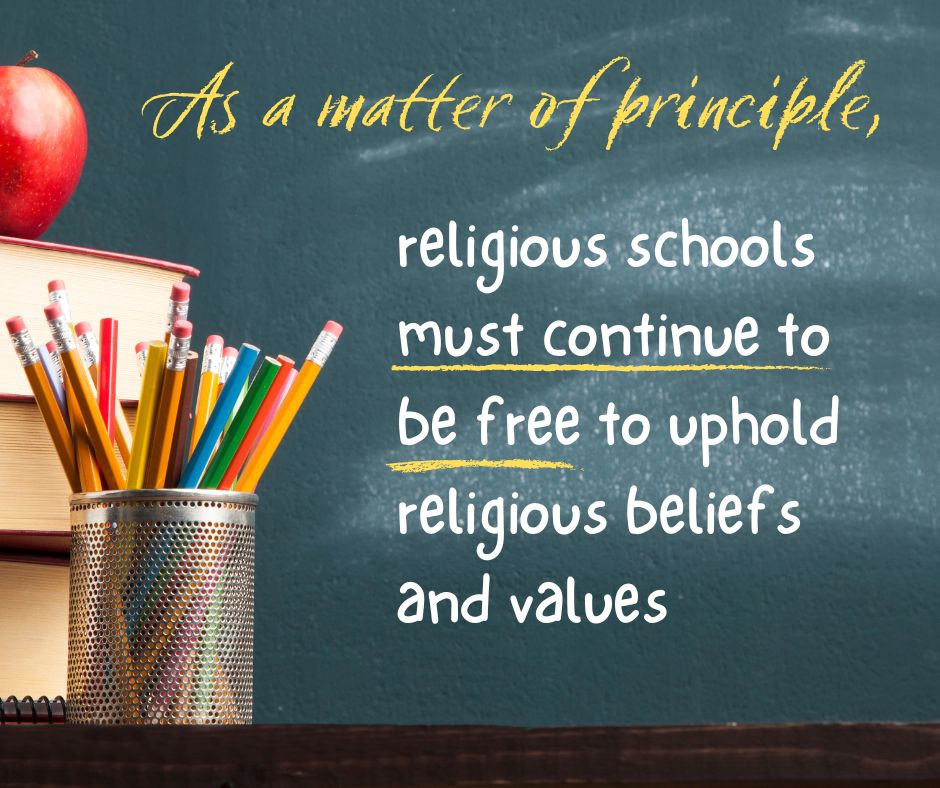This article is not about Bethlehem College. It is about much broader New Zealand rights of freedom of belief and expression, and how those should continue to apply to all our country’s religious schools.
According to the New Zealand Bill of Rights (1990), every New Zealander is entitled to…
13 Freedom of thought, conscience, and religion
Everyone has the right to freedom of thought, conscience, religion, and belief, including the right to adopt and to hold opinions without interference.14 Freedom of expression
Everyone has the right to freedom of expression, including the freedom to seek, receive, and impart information and opinions of any kind in any form.15 Manifestation of religion and belief
Every person has the right to manifest that person’s religion or belief in worship, observance, practice, or teaching, either individually or in community with others, and either in public or in private.
Such rights of belief and expression are for people of all beliefs, persuasions, and lifestyles. Increasingly, though, in western societies some beliefs and practices are being exalted above others, and some beliefs and practices (including some Christian ones) are being decried as dangerous, objectionable, and worthy of suppression.
These days, for instance, it is often now claimed by some that it is “discriminatory” for Christians to believe or say that marriage is about the union of a man and a woman. But such a belief is by no means unusual or extreme: it has been held by human societies since time immemorial, across vast numbers of cultures and religions, and it remains a basic moral assumption of many people, including many Christians. In our free society, it is a belief that Christian people, churches and schools should remain free to uphold, express, and practise. Other people remain free to disagree with Christians on this or any other matter. But they are wrong when they feel they have the right to proscribe what Christians (and others) may believe, say, or practise.
Sure, in recent years (2013) the New Zealand Parliament extended the legal scope of marriage in this country to allow for marriages between same-sex couples. We fully accept that as a legal reality, and as providing greater options for some. The decisions of the New Zealand Parliament cannot, however, restrict what people may or may not believe about the nature of marriage, according to their own beliefs, religion, and culture.
Maybe it is time for Christians to refer to “how we understand marriage”, or “how we understand Christian marriage”, in recognition that there is a wide range of understandings of marriage, both in society and even in some churches.
Christians have a right to believe, express and follow their own biblical moral values. They also have a strong biblical responsibility to hold and practise those Christian values in a loving way, with grace and respect.
As many of you will know, Bethlehem College in Tauranga has recently been under criticism in the media from some LGBTQ+ advocates. Among other things, some object to the clause in the College’s statement of belief that “In the beginning God created male and female. Marriage is an institution created by God in which one man and one woman enter into a relationship intended for life, and that marriage is the only form of partnership approved by God for sexual relations”. They also report that, following a complaint, the Ministry of Education has asked the school to remove that clause, because it was not part of the original integration agreement in 1999 (There are Ministry of Education processes for having changes approved, but the issue is whether those were followed).
We make no judgment on either Bethlehem College or the Ministry of Education. Our key point is simply to express the general principle that, one way or another, Christian schools must remain free to express and practise their Christian beliefs and values – and that they should do so lovingly and respectfully. The whole basis of the integration of “special character” schools is that their “special character” will be upheld. Parents have chosen to send their children to such schools precisely because of that special character. The Government must continue to respect that special character, and keep working well with those schools.









0 Comments